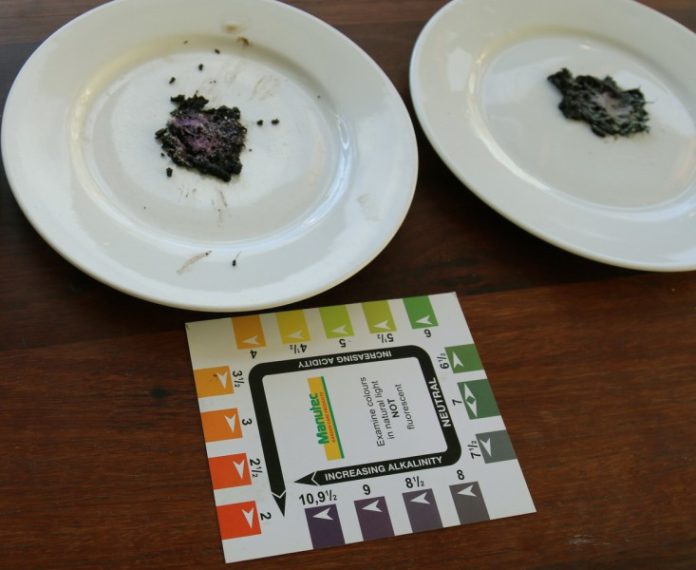
It used to be pretty standard advice to add sprinklings of garden lime to our compost as we built them, it’s how I was taught to compost and a rule I followed for years without questioning, but is adding lime essential for a healthy compost?
Garden lime is simply powdered limestone, a natural material that is quarried in places where old seas have formed a bed of rock made with very high deposits of seashells. When crushed to a fine powder and added to gardens or compost it has two main impacts, it adds calcium (an essential mineral, but present in other things too) and also raises the pH (a measure of acidity/alkalinity) making the soil more alkaline.
The old recommendation to add garden lime to compost was based on the belief that composts were generally acidic, and needed to be brought to a more neutral state to work properly. More recent understanding of the process that happens when microbes break down the organic components in an aerobic (an oxygen rich) compost has led to a different conclusion.
If a well-made compost starts off a bit too acidic, it will, through the natural composting process, pull back close to neutral acidity when it is mature. Amazingly, if our well-made compost starts off alkaline the final mature compost will also be pretty close to neutral! It seems, when we create the right conditions and leave nature to its own work, it will get things back to being pretty much balanced.
There are, of course, exceptions. If we were to make our compost out of ingredients that are all acidic (think crazy amounts of citrus) or all alkaline (say, almost only manure) our starting conditions might be so acidic or so alkaline to make our compost fail.
In these cases, beneficial microbial activity can be severely hindered or even halted and less desirable microbes will be selected for, producing something that we might not want to put on our gardens.
Letting our compost get anaerobic (too heavy and lacking in oxygen pathways) can also throw the acidity of our pile out of balance, with the undesirable anaerobic bacteria and fungi this kind of environment encourages making our composts too acidic.
If we stick with the common compost ingredients, the ones we talk about regularly in this column and do our best to keep a layered diversity of materials in our pile, with good aeration and all nice and moist, we are very unlikely to create overly acidic or overly alkaline finished compost. When our compost is going well we don’t have to worry if we need to add small quantities of more acidic or more alkaline ingredients, the microbes will sort it all out.
If we are having issues with the acidity or alkalinity of our garden soil, I would not try to correct this in our compost, but in the particular garden bed itself, and that’s more than we can cover in our conversation this week.
– Joel Meadows works with *Yes In My Back Yard, (YIMBY), a community-scale composting initiative in Castlemaine and surrounds. Send questions or comments to hello@yimbycompost.com, or to book in for a compost workshop!







